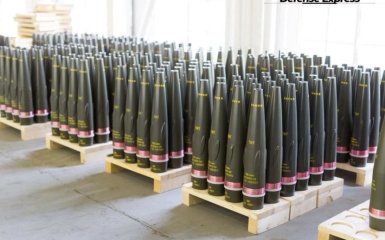The European Union will not be able to provide the promised million shells to Ukraine by March 1, 2024. By this time, only 600,000 ammunition will be collected in the EU countries.
What is known about the transfer of shells from the EU to Ukraine
According to diplomats, "European allies will fall short of the 1 million shells they promised to deliver by March 1," providing only about 600,000 by that deadline amid ongoing production delays and fears of stockpile depletion.
A meeting of defense ministers in Brussels this week may try to count other deliveries to increase the total, but will still fall short of the one million target set last year, the paper quoted diplomats as saying.
If Ukrainian forces do not have the shells to keep up the pressure, Russia can continue to fire artillery while its infantry attack Ukrainian positions.
This is an unfair fight for Ukrainian defenders, said the Rand Corp. researcher and US Army Reserve Officer Ann Marie Daley.
Shells for Ukraine
In March 2023, the ministers of defence and foreign affairs of the EU agreed on a plan for the joint procurement of ammunition. It envisages providing Ukraine with 1 million shells over the next 12 months. In particular, it was about seven countries.
But already in November, the EU informed its members that it is unlikely to be able to transfer the promised 1 million artillery shells to Ukraine. This plan should be completed by March 2024.
At the same time, at the end of November, the European Commissioner for the EU internal market, Thierry Breton, citing statistical data, stated that by the spring of 2024, the production potential of defence enterprises in the EU would amount to more than a million artillery shells. However, the transfer of ammunition to Ukraine requires an appropriate solution, which does not exist yet.




